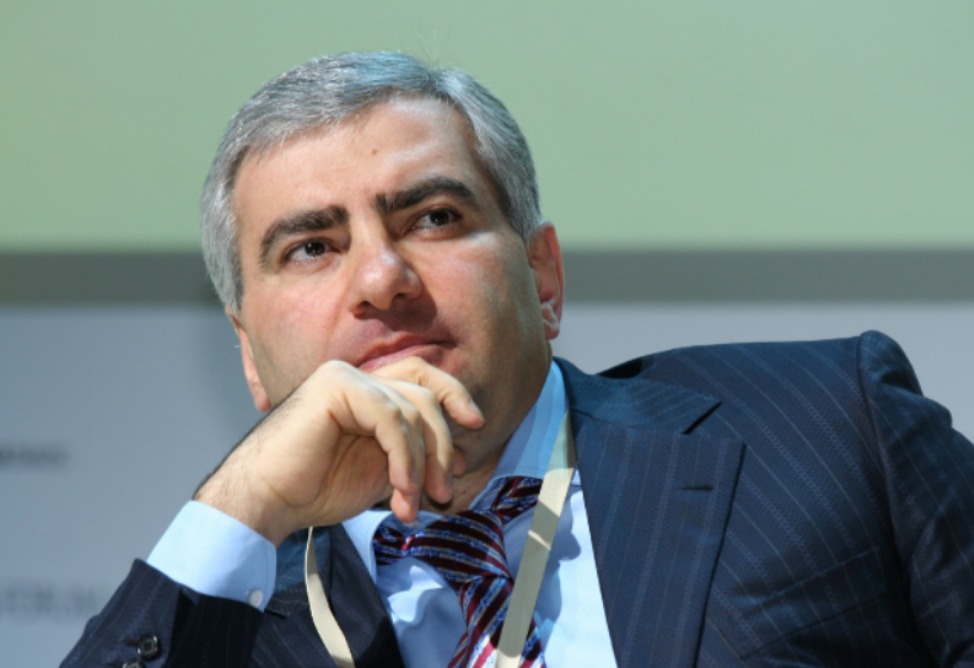Armenia can help turkey become European country, OSCE PA
08.09.2008,
20:09
Armenia has a historic chance to help Turkey become a modern European country, Goran Lenmarker, Special Representative of the Chairman of the OSCE Parliamentary Assembly for Nagorno-Karabakh conflict, Special Reporter on the situation in Georgia and South
YEREVAN, September 8. /ARKA/. Armenia has a historic chance to help Turkey become a modern European country, Goran Lenmarker, Special Representative of the Chairman of the OSCE Parliamentary Assembly for Nagorno-Karabakh conflict, Special Reporter on the situation in Georgia and South Ossetia, stated at his meeting with Speaker of the RA Parliament Tigran Torosyan.
He expressed his appreciation of Armenia’s policy in the region, pointing out that he expects progress in Armenian-Turkish relations after Turkish President Abdullah Gul’s visit to Armenia.
He stated that powerful forces in Turkey want to make it a modern European country but encounter difficulties.
Lenmarker said that Turkey is a Muslim country, where the state is not often separated from religion, and the incumbent Government, with religious Government members, wants it, which, in turn, is of importance for being closer to European policy.
Turkey must find strength to accept its past by admitting the Armenian Genocide, and become a EU member, after the country meets all the standards set for EU member-states – the protection of human rights, democracy and incorrupt society, Lenmarker said.
In this context he pointed out the importance of the establishment of Armenian-Turkish relations, with the first step to be the reopening of border between the two countries.
Lenmarker stressed that the improvement of bilateral relations may have a psychological effect on Turkey, which will prevent nationalist forces from dominating the situation and allow Turkey to become a truly European country.
Speaker Torosyan pointed out that Armenia has always been ready to establish relations without any preconditions. However, it is Turkey that sets preconditions.
“Nonetheless, we should look ahead with hope. The different states’ interests clash in the region, but it is the countries of the region that must primarily be concerned over peace and security in the region”.
Armenia and Turkey have no diplomatic relations, and the Armenian-Turkish border was closed in 1993 on Turkey’s initiative.
Turkey sets a number of preconditions for bilateral relations, namely, Armenia’s abandoning the policy of international recognition of the Armenian Genocide and recognizing Turkey’s present-day borders. Besides, Turkey holds an overt pro-Azerbaijani position in the Nagorno-Karabakh peace process. –0--
He expressed his appreciation of Armenia’s policy in the region, pointing out that he expects progress in Armenian-Turkish relations after Turkish President Abdullah Gul’s visit to Armenia.
He stated that powerful forces in Turkey want to make it a modern European country but encounter difficulties.
Lenmarker said that Turkey is a Muslim country, where the state is not often separated from religion, and the incumbent Government, with religious Government members, wants it, which, in turn, is of importance for being closer to European policy.
Turkey must find strength to accept its past by admitting the Armenian Genocide, and become a EU member, after the country meets all the standards set for EU member-states – the protection of human rights, democracy and incorrupt society, Lenmarker said.
In this context he pointed out the importance of the establishment of Armenian-Turkish relations, with the first step to be the reopening of border between the two countries.
Lenmarker stressed that the improvement of bilateral relations may have a psychological effect on Turkey, which will prevent nationalist forces from dominating the situation and allow Turkey to become a truly European country.
Speaker Torosyan pointed out that Armenia has always been ready to establish relations without any preconditions. However, it is Turkey that sets preconditions.
“Nonetheless, we should look ahead with hope. The different states’ interests clash in the region, but it is the countries of the region that must primarily be concerned over peace and security in the region”.
Armenia and Turkey have no diplomatic relations, and the Armenian-Turkish border was closed in 1993 on Turkey’s initiative.
Turkey sets a number of preconditions for bilateral relations, namely, Armenia’s abandoning the policy of international recognition of the Armenian Genocide and recognizing Turkey’s present-day borders. Besides, Turkey holds an overt pro-Azerbaijani position in the Nagorno-Karabakh peace process. –0--



